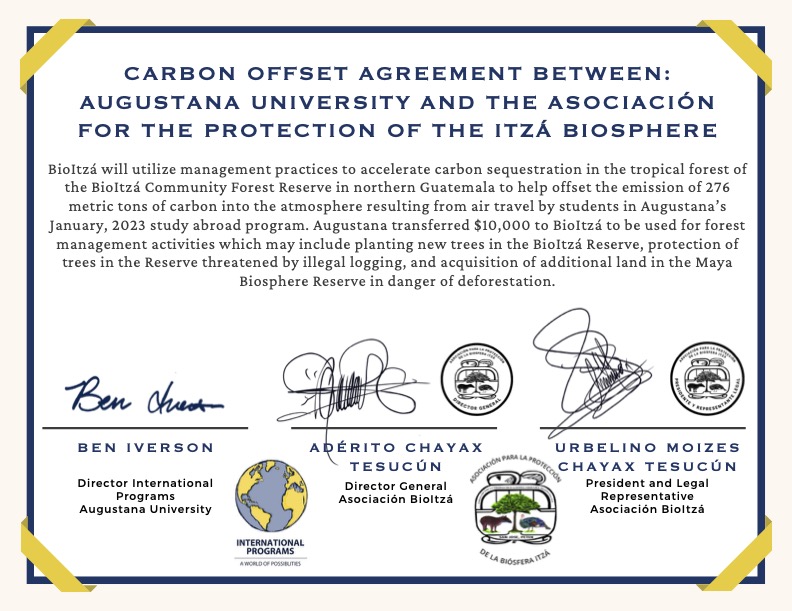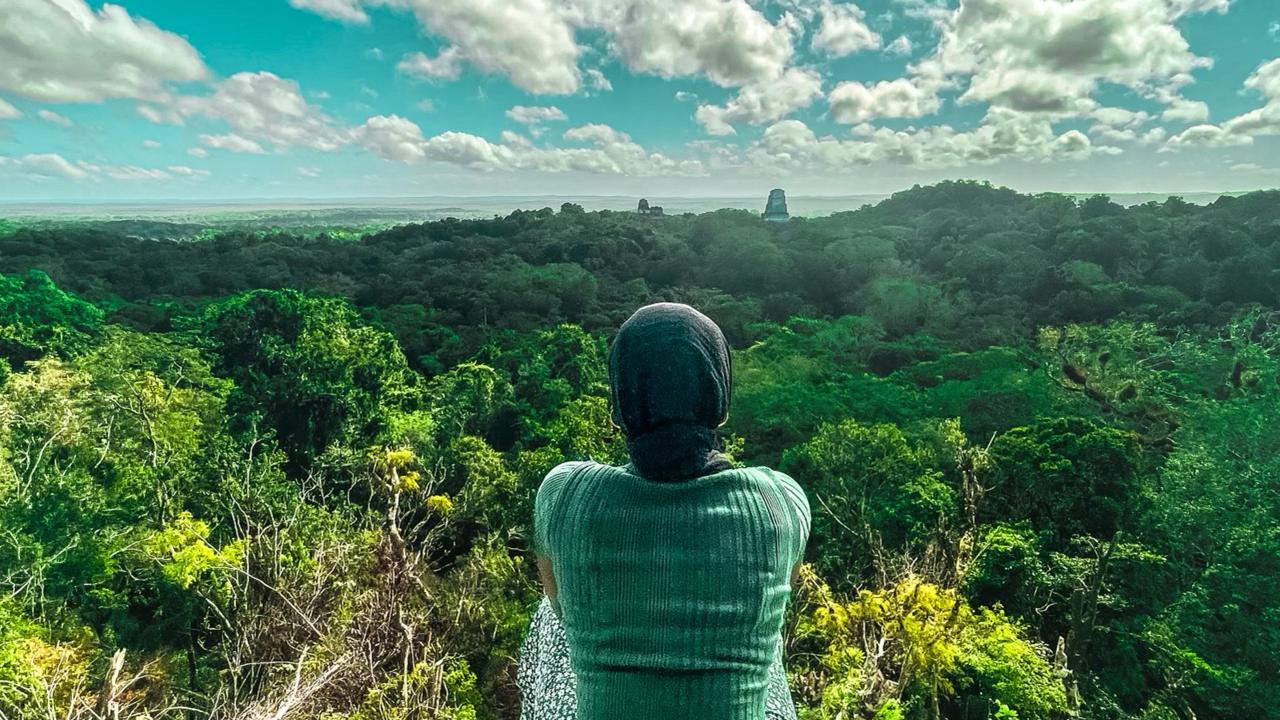Photo: Rachida Mahamed ‘25, Guatemala
Augustana has made its January Interim (J-Term) study-abroad travel carbon neutral for the first time in university history, thanks to the support of generous donors and a decades-long relationship with a forest reserve in Guatemala.
“I think it’s not only the right thing to do to figure out how to offset our carbon emissions, but it’s also a strategic decision as we think about what’s important for the next generation of students who will come to AU,” said Director of International Programs & Enrollment Ben Iverson ‘04.
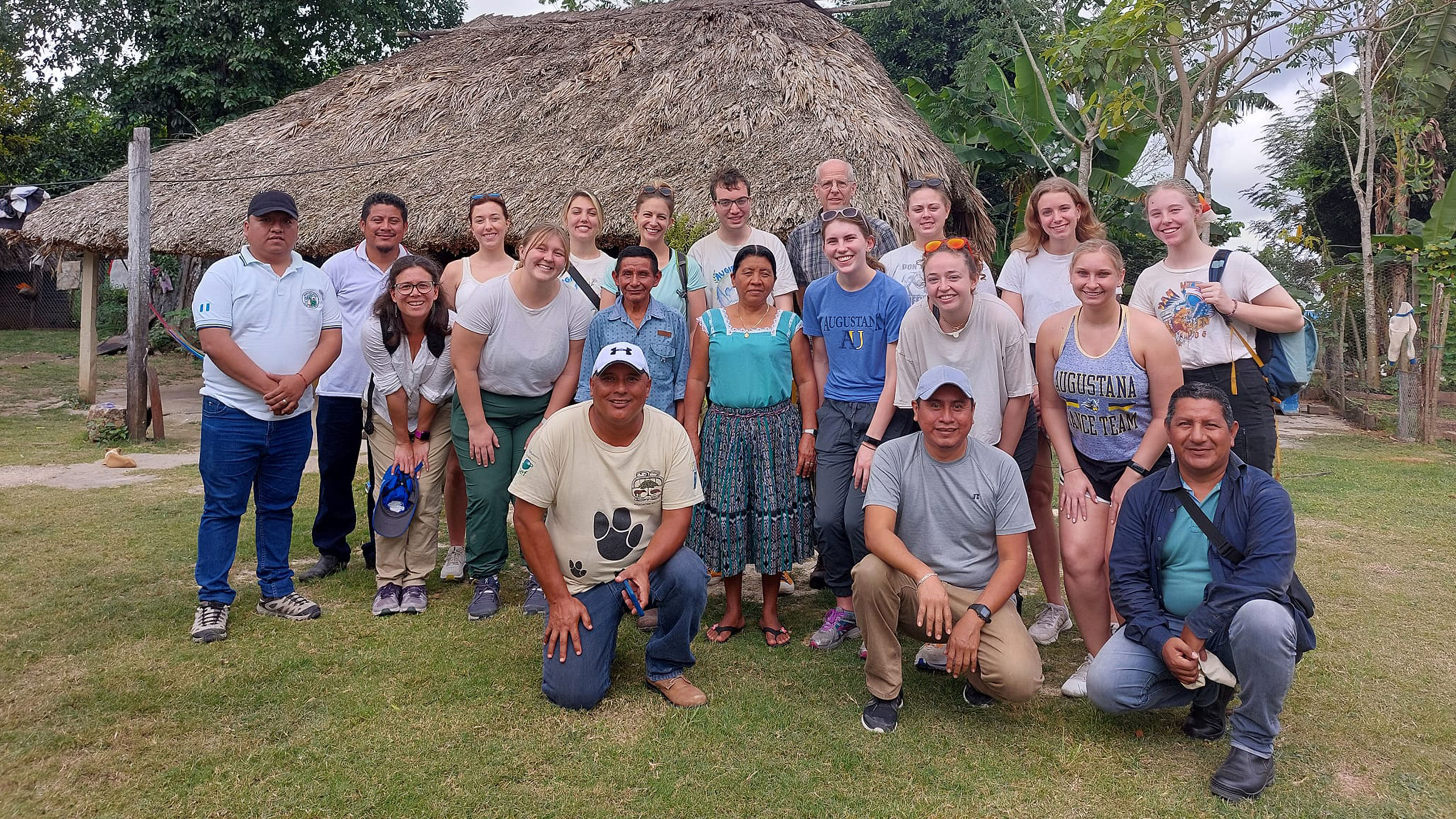 On occasion, Iverson said some students have expressed their reservations to the International Programs Office (IPO) about the carbon footprint of travel and, more specifically, travel abroad. In talking with prospective students from Europe, it’s a bigger deal, and American students are catching on — becoming more aware of the increasing issue.
On occasion, Iverson said some students have expressed their reservations to the International Programs Office (IPO) about the carbon footprint of travel and, more specifically, travel abroad. In talking with prospective students from Europe, it’s a bigger deal, and American students are catching on — becoming more aware of the increasing issue.
The Cost
At Augustana, more than half of its students study away by the time they graduate — a majority of them doing so through AU faculty-led courses over J-Term. During J-Term 2023, 275 Augustana students traveled to nearly a dozen different countries as part of 13 courses — providing them with unique hands-on and immersive cultural experiences. However, these experiences come at a cost… to our planet.
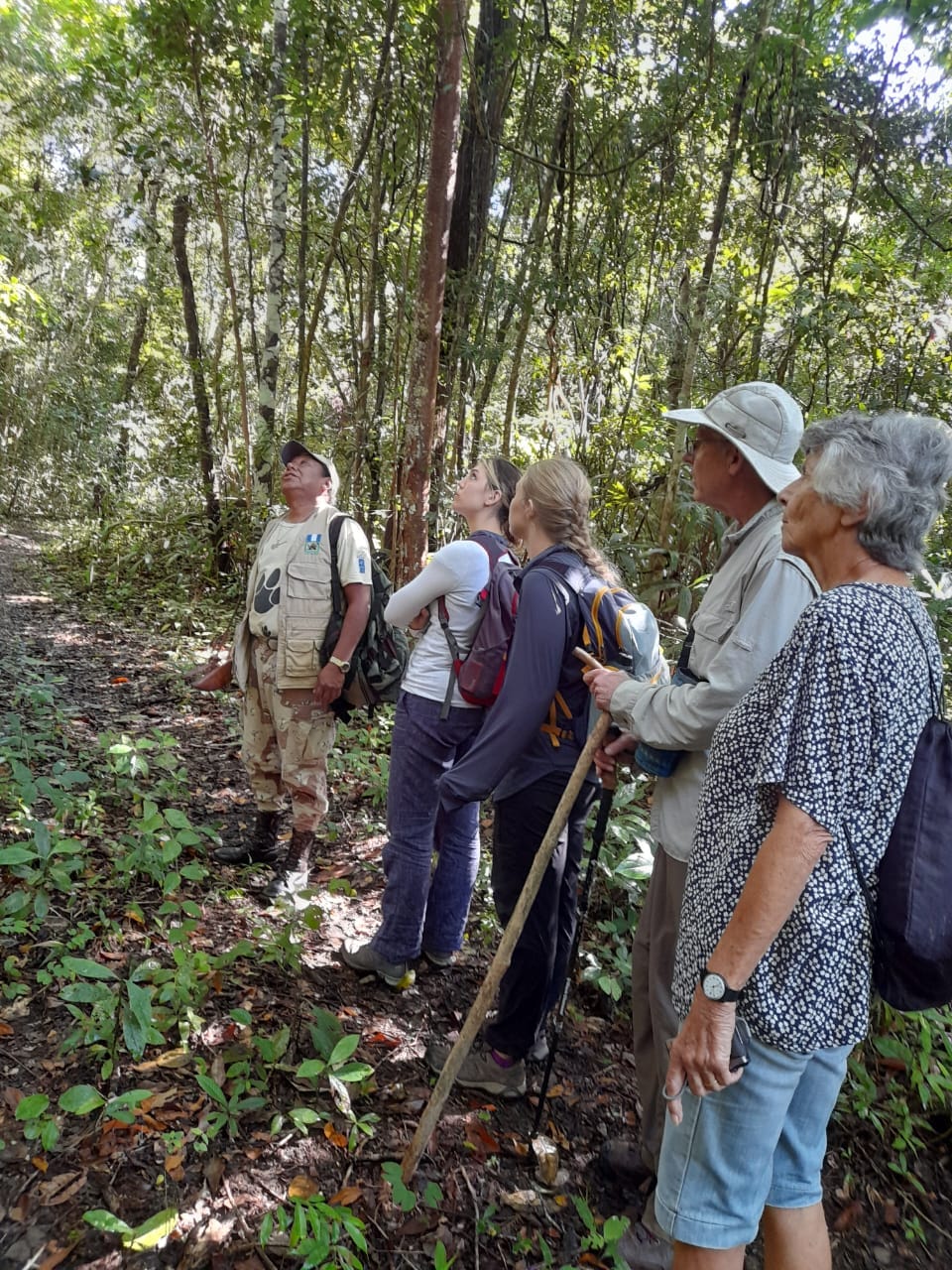 “It’s the most impactful teaching I’ve ever done,” said Professor Emeritus of Biology Dr. Craig Spencer, who has been leading study-away courses to Guatemala since 2007. “So much so that I didn’t want to give that course up even when I retired. But, always in the back of my mind, I felt one of the downsides was increasing our carbon footprint.”
“It’s the most impactful teaching I’ve ever done,” said Professor Emeritus of Biology Dr. Craig Spencer, who has been leading study-away courses to Guatemala since 2007. “So much so that I didn’t want to give that course up even when I retired. But, always in the back of my mind, I felt one of the downsides was increasing our carbon footprint.”
On a mission to have Augustana become a “role model for the world,” Spencer had his students calculate just how much it would cost to offset the university’s carbon footprint from air travel in January 2023. The students estimated that 276 metric tons of carbon were emitted into the atmosphere, and then multiplied that by the 2022 fair market value of $36 per ton to offset these emissions. Nearly $10,000 was needed to offset the cost of travel for J-Term travel in 2023 — for which Augustana was able to secure funding.
“The money was raised from anonymous private donors who felt moved to support this effort on the behalf of Augustana and the IPO,” said Spencer.
The Solution
So, how does one offset a carbon footprint? Spencer turned his focus to an organization in Guatemala that he and Augustana have had a relationship with for years — one that works to protect, maintain and restore what he calls the “lungs of our planet.”
“The next best thing (next to not flying at all) is trying to offset that carbon emission by supporting, encouraging, helping promote storage of that amount of carbon somewhere else by taking that carbon out of the air, and we already have a beautiful natural system that does that,” said Spencer. “If we want to go to a place that is the most efficient at doing that, it’s the tropical forests — with the tremendous amount of plant biomass found there. The plants remove carbon dioxide from the atmosphere during photosynthesis, store it in plant biomass and release oxygen back into the atmosphere.”
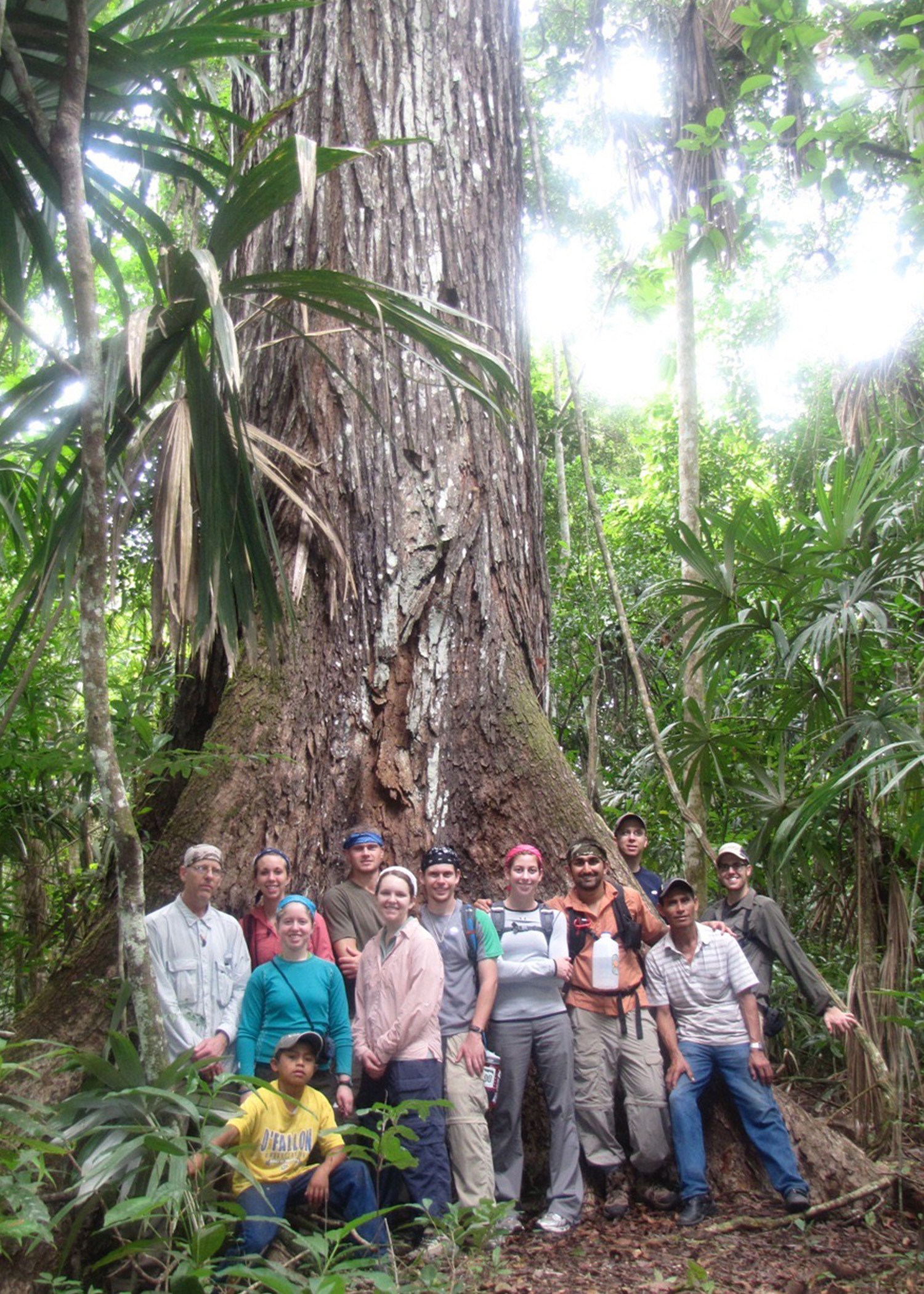 Ironically, it was through Spencer’s initial J-Term course studying tropical forests that he was able to form the relationship between Augustana and Bio-Itzá, which manages a large tropical forest reserve in northern Guatemala. Bio-Itzá is a non-profit, community-based association founded by indigenous Maya-Itzá people in an effort to rescue their ancestral heritage and culture, including knowledge of the tropical forests where they lived for more than 1,000 years.
Ironically, it was through Spencer’s initial J-Term course studying tropical forests that he was able to form the relationship between Augustana and Bio-Itzá, which manages a large tropical forest reserve in northern Guatemala. Bio-Itzá is a non-profit, community-based association founded by indigenous Maya-Itzá people in an effort to rescue their ancestral heritage and culture, including knowledge of the tropical forests where they lived for more than 1,000 years.
“Unfortunately, the forests in Guatemala, like many tropical forests around the world, are being deforested at an alarming rate. As Augustana students have seen firsthand, the forests all around the Bio-Itzá Reserve are being cleared and burned, primarily for agriculture, and there’s a huge problem with fires from surrounding agricultural lands spreading into the reserve.” In addition, Spencer said, “There’s illegal poaching — people are coming in and cutting down valuable mahogany trees, cedar trees from the Bio-Itzá Reserve.
Over the years, more than 100 Augustana students and six professors have spent time with Bio-Itzá, studying forest ecology and sustainability. The AU community has lived with host families in the small community of San José, and worked on a number of service projects in the forest, as well as in the community. According to Spencer, more than a dozen AU students have returned to Guatemala in their own time— some more than once — to volunteer for various community organizations, including Bio-Itzá.
“This is one of the longest-running faculty-led study-abroad courses that we have at Augustana,” said Iverson. “I think that’s just evidence of the strength of the relationship that Craig and others at AU have built with the Bio-Itzá organization and the folks on the ground there, as well as the impact of the program on students. One of the reasons these programs persist is because the students have a great experience and tell other students.”
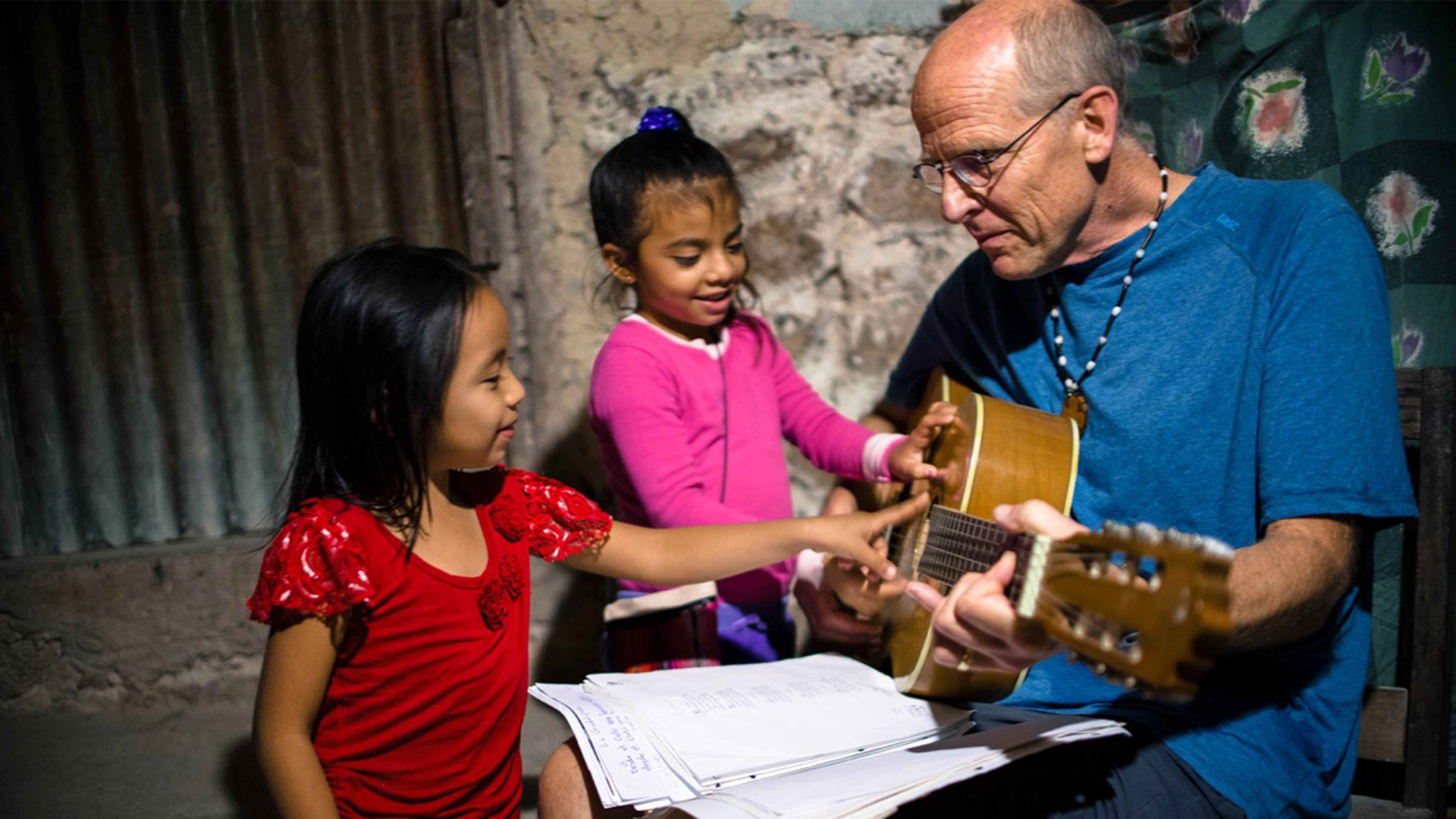 The impact the forest and reserve have had on students and the world is why Augustana, with the support of donors, chose to donate $10,000 to the Bio-Itzá Association as a way to offset Augustana’s carbon footprint this past January. The funds provided to Bio-Itza from the carbon offset agreement with Augustana will be used to protect and enhance the Bio-Itzá Forest Reserve in various ways, such as planting trees, hiring additional forest rangers to protect the forest, clearing fire breaks and possibly securing additional land that is threatened by deforestation.
The impact the forest and reserve have had on students and the world is why Augustana, with the support of donors, chose to donate $10,000 to the Bio-Itzá Association as a way to offset Augustana’s carbon footprint this past January. The funds provided to Bio-Itza from the carbon offset agreement with Augustana will be used to protect and enhance the Bio-Itzá Forest Reserve in various ways, such as planting trees, hiring additional forest rangers to protect the forest, clearing fire breaks and possibly securing additional land that is threatened by deforestation.
“These folks (at Bio-Itzá) that do this are my heroes,” Spencer explained. “In some cases, they’re putting their lives on the line to protect the forest, so if we can help them fight the good fight, I can’t think of a better investment really.”
The Future
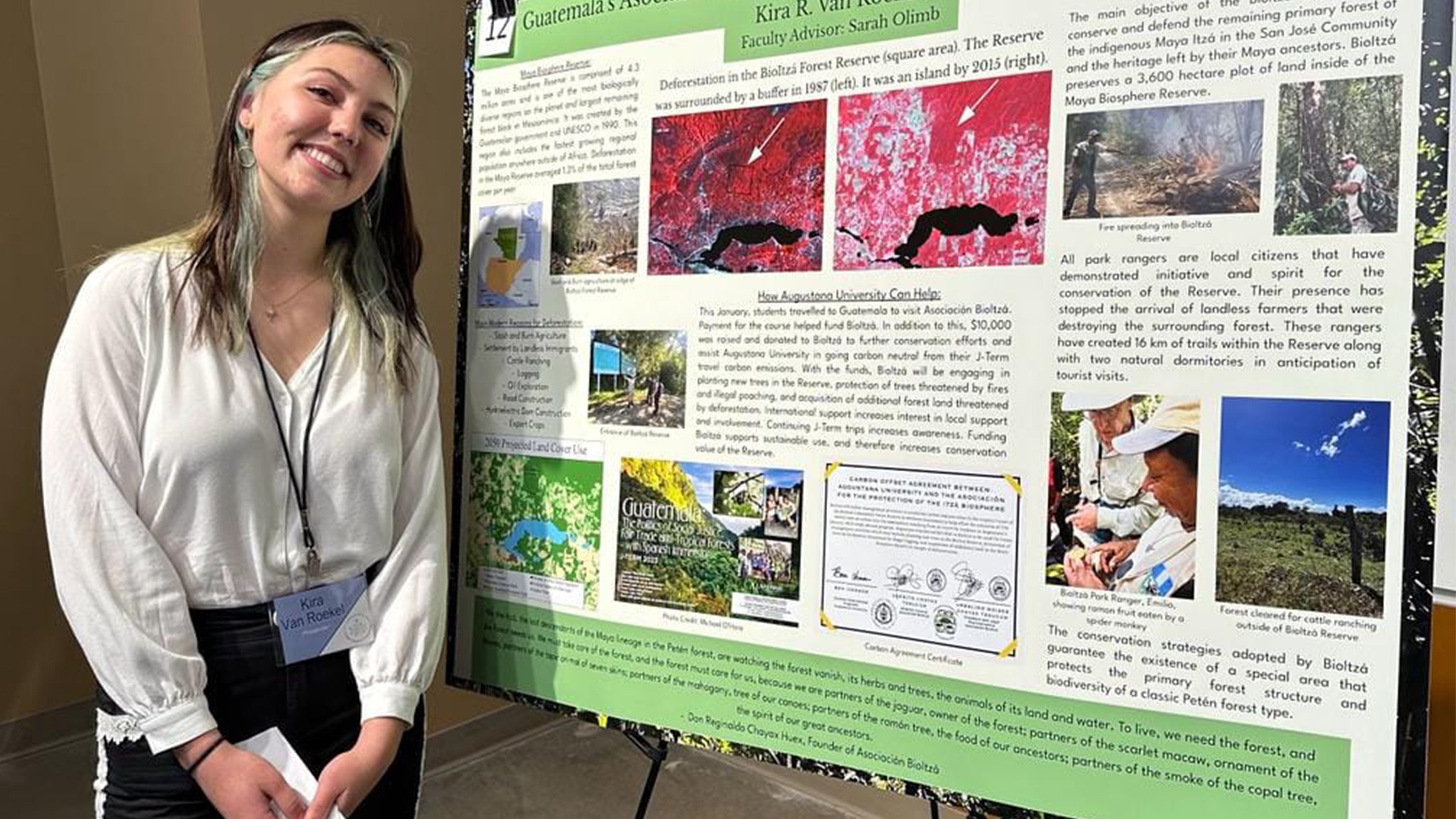
As part of a course project, Augustana student Kira Van Roekel ‘24 created a certificate recognizing the carbon offset agreement between Augustana and the Bio-Itzá Association in 2023, set to be signed by officials at both organizations.
“It’s just a little recognition of the fact that this took place,” said Spencer. “Hopefully, we will have decades worth of these hanging on the wall in the future.”
And, that is what the IPO is in the midst of trying to figure out — whether offsetting carbon emissions for study-away travel is something Augustana can continue to try to fund in the future.
To learn more about the IPO at Augustana University, visit augie.edu/IPO.
